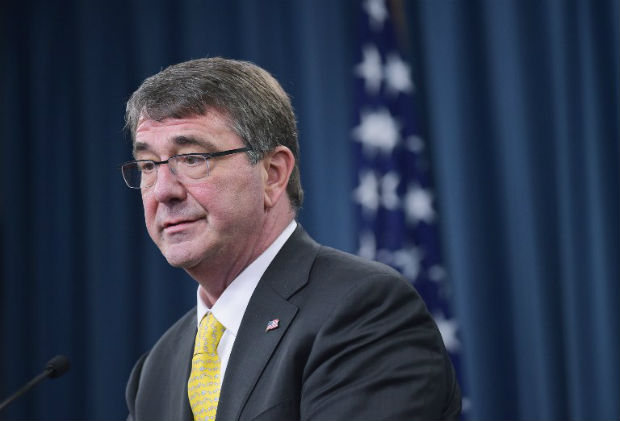SINGAPORE—Asia’s largest annual security forum opens Friday in Singapore with territorial disputes in the South China Sea, North Korea’s military provocations and Islamist extremism expected to dominate discussions.
The Shangri-La Dialogue, organized by the London-based International Institute for Strategic Studies (IISS), is to be attended by at least 20 defense ministers led by Pentagon chief Ashton Carter, said IISS Asia executive director Tim Huxley.
Beijing’s claim to nearly the entire South China Sea has angered Southeast Asian neighbors and pitted it against the United States, which has conducted patrols near Chinese-held islands to press for freedom of navigation in the body of water that encompasses key global shipping lanes.
The Philippines, Brunei, Malaysia and Vietnam have competing claims in the area, which is believed to have significant oil and gas deposits.
“There is much speculation about China’s next steps in the South China Sea, particularly in the context of an apparently imminent ruling by the Permanent Court of Arbitration in The Hague on a Philippine submission that challenges important aspects of China’s claims and activities there,” Huxley wrote in a preconference blog.
Defense spending
Tensions in the South China Sea are expected to drive up Asia-Pacific defense spending by nearly 25 percent from 2015 to $533 billion in 2020, security think-tank IHS Jane’s wrote in a research note issued on Thursday.
“By 2020, the center of gravity of the global defense spending landscape is expected to have continued its gradual shift away from the developed economies of Western Europe and North America, and toward emerging markets, particularly in Asia,” said IHS Jane’s director Paul Burton.
Tensions on the Korean peninsula are another concern to be addressed at the Singapore forum.
The UN Security Council on Wednesday strongly condemned North Korea’s latest attempted missile launches and urged world governments to ramp up efforts to impose sanctions on Pyongyang.
Huxley also said there has been renewed concern over “jihadist terrorism,” particularly the threat from organizations and individuals in Southeast Asia who have associated themselves with the Islamic State.
Thai Prime Minister Prayut Chan-O-Cha, a former army chief who seized power two years ago, will open the Singapore conference with an evening keynote address.
The forum also serves as a venue for military officials to meet behind closed doors.
Past editions of the conference have been marked by heated public exchanges between US and Chinese officials.
‘Showdown inevitable’
Zhou Bu, an honorary fellow at China’s Academy of Military Science, wrote in Singapore’s Straits Times newspaper ahead of the forum that public acrimony between the two powers could lead people to believe that “a showdown between the two giants is inevitable.” Recent editions of the Shangri-La Dialogue have been a “feast for the media” and could mislead people to believe that “a showdown between the two giants is inevitable,” Zhou wrote.
But he said the US-China relationship is “also resilient, partly because each side can ill afford the consequence of a conflict or confrontation.” There are over 90 dialogues plus two hotlines between the two governments and two militaries to make sure the relationship stays on track, Zhou said.
He noted that China will take part in a 27-nation US-led naval exercise called the Rim of the Pacific Exercise, billed as the world’s largest such drills, off Hawaii and California starting in late June.
